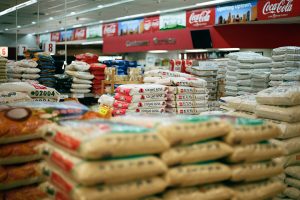The UN Conference on Trade and Development (UNCTAD) has released a policy brief that calls for the effective implementation and reform of World Trade Organization (WTO) provisions to promote the right to food. The brief titled, ‘Towards a New Trade Agenda for the Right to Food,’ identifies opportunities to strengthen the nexus between the right to food and trade policy.
In July 2020, the Special Rapporteur on the right to food invited states to advance trade policy from a rights-to-food perspective in his interim report to the 75th session of the UN General Assembly (UNGA). The report observed that the Agreement on Agriculture of the WTO had not provided adequate trade results and food security outcomes, and recommended winding down the Agreement and negotiating new international food agreements that focus on ensuring “everyone eats with dignity and is free from hunger.”
UNCTAD serves as the UN focal point for the integrated treatment of trade and development and interrelated issues of finance, investment, technology, and sustainable development. Within this context, UNCTAD’s policy brief argues, a key challenge is a delay in implementation of the provisions of the Agreement on Agriculture, especially with regard to special and differential treatment in respect of commitments. In other words, the Agreement’s implementation, rather than the content, presents challenges with regard to the right to food.
The policy brief recognizes access to food as a fundamental human right, and states that trade plays a key role in ensuring access to food by promoting equitable distribution of world food supplies in relation to need, including by shifting food surplus to deficit locations. The brief observes the COVID-19 pandemic adds extra urgency to the need to advance multilateral policy coordination for agriculture trade from a right-to-food perspective and pursue a post-pandemic recovery policy that addresses local food consumption and production needs.
The brief identifies four topics that require action by WTO members:
- Export restrictions: the paper recommends WTO members agree to not impose export restrictions on essential foodstuffs for food-deficient developing countries and on food aid to countries in an emergency situation;
- Support for resource-poor agricultural producers: the brief recommends improving Agreement articles to make them more user friendly in supporting vulnerable producers, including women;
- Public stockholding: the brief calls for a permanent solution to public stockholding for food security purposes, including through support provided for traditional staple food crops; and
- Financial and technical support to agricultural production from development partners: the brief recommends scaling up support to address food security, including to encourage high levels of agricultural productivity in least developed countries (LDCs) and net food-importing developing countries.
The brief concludes by highlighting the opportunities presented by the 15th session of UNCTAD and the 12th WTO Ministerial Conference (MC12) to incorporate the right-to-food agenda in the global agricultural trade architecture. A group of WTO members has also expressed support for exempting from export restrictions food bought for humanitarian purposes, in response to the COVID-19 pandemic. [Publication: Towards a New Trade Agenda for the Right to Food] [SDG Knowledge Hub Policy Brief on WTO Discussions on Easing Restrictions on Humanitarian Food Aid]


